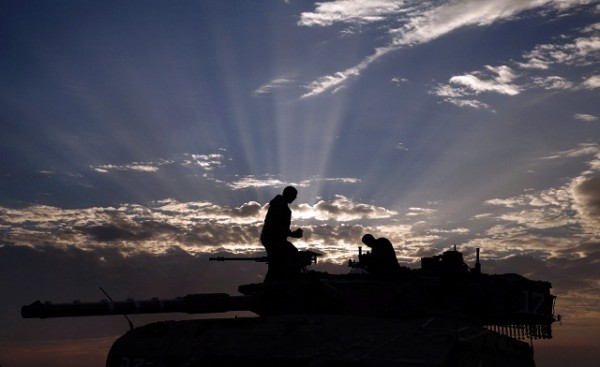Israel may resume its attacks on Gaza at any time if a truce that ended a week of bloodshed fails to hold, said Defense Minister Ehud Barak in a warning on Thursday.
The ceasefire “can last nine days, nine weeks or more, but if it does not hold we will know what to do, and then of course we shall consider the possibility of resuming our (military) activity in case of shooting or provocation,” he told public radio.
“Can we win Gaza over from Hamas, yes definitely,” Israeli Intelligence Minister Dan Meridor told journalists in Jerusalem. “If we decide to do it we’ll do it.”
The morning after it took effect, the ceasefire was being honored in the Gaza Strip, following eight days of cross-border violence that resulted in the deaths of 163 Palestinians and five Israelis.
Obtained after an intense diplomatic push led by Egypt and the United States, the truce came into force at 1900 GMT on Wednesday, based on text of the agreement.
Barak justified the Israeli government’s decision to call off a threatened large-scale ground offensive in Gaza, despite the mobilization of tens of thousands of reservists.
“Such an operation could have created a situation where we would have had to stay for years in the Gaza Strip. I don’t miss Gaza, I’m sure Hamas does not feel nostalgia for what has been happening to it in recent days,” he said.
Barak said that the truce arrangement was not a formal treaty between Israel and Hamas, with whom the Jewish state says it does not negotiate.
“It is not an agreement, it is an unsigned paper,” he told the radio.
“That does not mean it is not worth anything, but it only reflects the arrangements concluded between us and the Egyptians on one side and between Hamas and Egypt on the other, as well as the limitations that both parties accepted,” he said.
“The most important point concerns the commitment of all the Palestinian factions to cease all hostile activities against Israel, including firing rockets or attacks against the Israeli army along the border between Gaza and Israeli territory.
“If peace continues to prevail, there is no reason not to allow Palestinian farmers to cultivate their land up to the border fence,” Barak said.
In the same vain, peace envoy Tony Blair said on Thursday Israelis and Palestinians must address the root causes of tensions in the Middle East now a ceasefire halting eight days of conflict around Gaza is in place.
“The key thing was always to get the ceasefire in place… What is necessary now is to deal with the root causes of the problem,” the former British prime minister, who represents the diplomatic Quartet comprising the United Nations, United States, European Union and Russia, told AFP reporters.
Meanwhile, Palestinian President Mahmoud Abbas spoke by telephone on Thursday with Gaza’s Hamas premier Ismail Haniya and congratulated him on his “victory,” a Hamas statement said.
“In a telephone conversation, President Abu Mazen (Abbas) congratulated prime minister Ismail Haniya of Hamas on his victory and offered condolences for the martyrs,” a statement from the Gazan leader’s office said.
“The president received a phone call from brother Haniya who informed him of the situation in Gaza after the ceasefire,” according to the official Palestinian new agency Wafa.
“The president saluted (the Palestinian) steadfastness in face of the aggression and stressed the importance of reaching a ceasefire and sparing Gaza the scourge of war,” Wafa said, adding: “The president supports the efforts to strengthen national unity.”
In addition, Haniya and two other senior Gaza officials — Ahmed Bahar of Hamas and Mohammed al-Hindi of Islamic Jihad — expressed their “support for the national drive for observer status from the UN on November 29,” Wafa said.
In Gaza, streets which had been emptied by Israel’s intensive air strikes were once again flooded with honking cars and people getting back to their daily business in celebration of the ceasefire.






